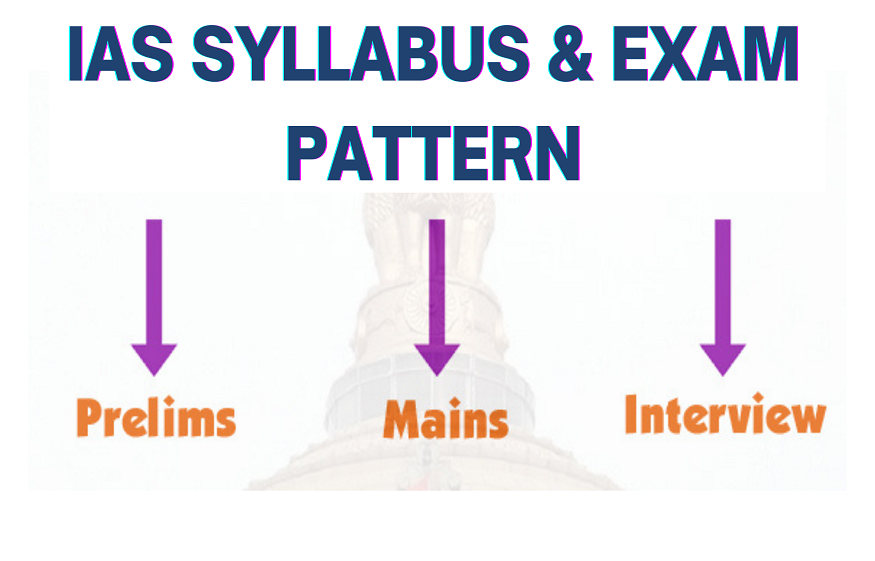One of the first steps in clearing the UPSC (Union Public Service Commission) Examination is to have a thorough understanding of the UPSC syllabus. It goes without saying that the UPSC exam is one of the toughest competitive exams in the country. Therefore, any edge a candidate can get is crucial.
This article will give a brief detail about the UPSC Syllabus 2023 in general while providing tips on how to master it with ease.
Understanding the UPSC Syllabus
Understanding the UPSC Syllabus helps in eliminating wasteful efforts such as learning about topics which are not covered in the syllabus, thereby keeping the candidate aligned with the expectations of the exam from the beginning itself.
It is known that the UPSC Exam consists of Prelims and Mains stages. The syllabus is divided into the Prelims and Mains stages. Going through the details of each stage will be useful for candidates writing the UPSC Exam.
The syllabus for Prelims consists of two papers. They are as follows:
Syllabus for Prelims Paper-I
- Current events of national and international importance.
- History of India and Indian National Movement.
- Indian and World Geography-Physical, Social, Economic Geography of India and the World.
- Indian Polity and Governance – Constitution, Political System, Panchayati Raj, Public Policy, Rights Issues, etc.
- Economic and Social Development – Sustainable Development, Poverty, Inclusion, Demographics, Social Sector initiatives, etc.
- General issues on Environmental Ecology, Biodiversity, and Climate Change – that do not require subject specialisation.
- General Science
Syllabus for Prelims Paper-II
- Comprehension
- Interpersonal skills, including communication skills
- Logical reasoning and analytical ability
- Decision-making and problem-solving
- General mental ability
- Basic numeracy (numbers and their relations, orders of magnitude, etc.) (Class X level), Data interpretation (charts, graphs, tables, data sufficiency, etc. – Class X level)
Syllabus for UPSC Mains
- Paper- I: Essay (can be written in the medium of the candidate’s choice)
- Paper- II: General Studies – I (Indian Heritage & Culture, History & Geography of World
- Paper – III: General Studies – II (Governance, Constitution, Polity, Social Justice & International Relations)
- Paper – IV: General Studies – III (Technology, Economic Development, Biodiversity, Security & Disaster Management)
- Paper – V: General Studies – IV (Ethics, Integrity & Aptitude)
- Paper VI – Optional Subject – Paper I
- Paper VII – Optional Subject – Paper II
Now, understanding all of the syllabus in one go is not easy. Hence, it is always recommended to download the UPSC Syllabus 2023 PDF.
Tips to Master UPSC Syllabus
Since a general idea of the UPSC Syllabus has been given, candidates can get tips on how they can complete the syllabus with great ease.
Tip#1: Filter relevant content
The UPSC syllabus is extensive; thus, it is important to carefully read and go through it in order to effectively mind-mapping the relevant content. This way, it would optimise the efforts a candidate would put in for its UPSC preparation.
Tip#2: Keep a PDF or a micro list of the UPSC syllabus handy
Keeping a copy of the UPSC syllabus in a PDF form or any other type of list will be helpful, as it will help in referring to the syllabus easily and remembering them from time to time.
Tip#3: Strengthen your foundation
In order to cover the UPSC syllabus, it is important to have a strong foundation regarding the subjects. For this, NCERT books will help all standard subjects. The NCERT books will play a crucial role in covering most of the topics that are covered in the syllabus.
Tip#5: Keep revising
Revision is really the key to the UPSC syllabus It helps in conceptual clarity and concept retention. Make it a habit to revise whatever you read on a particular day at night. Dedicate specific days in your weekly and monthly planner specifically to revision. In the end, it is not about how much you will study for the UPSC Exam, but rather, how much you will be able to retain it.



